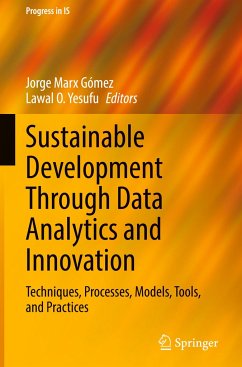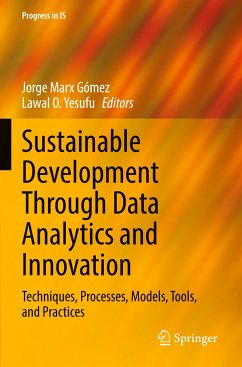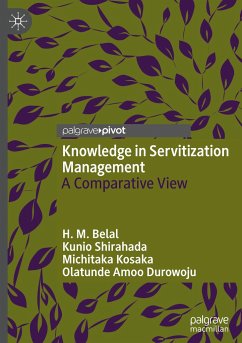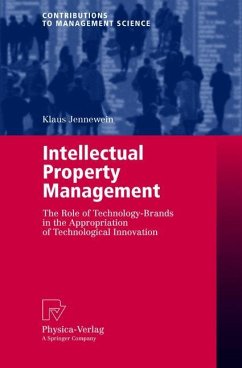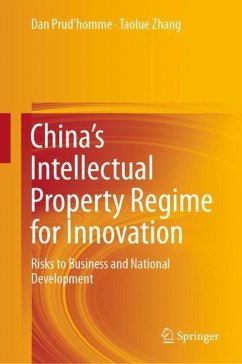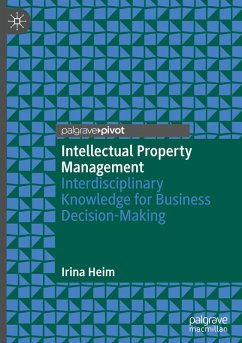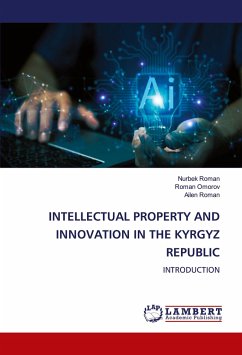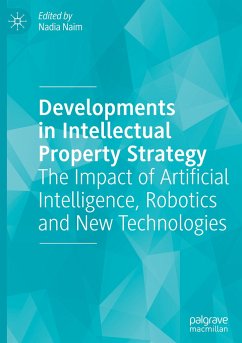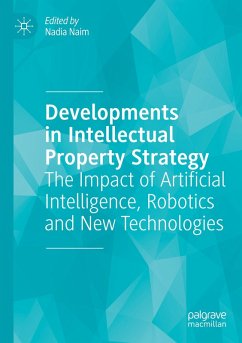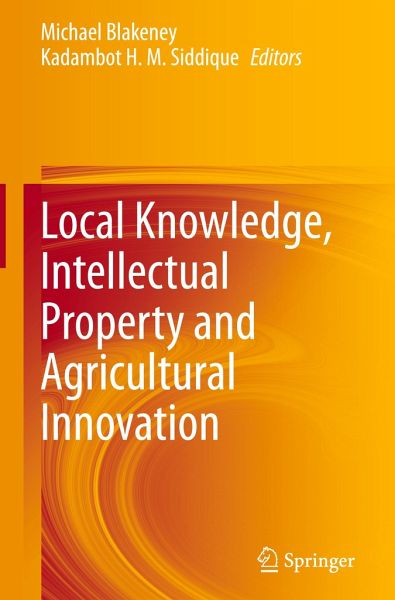
Local Knowledge, Intellectual Property and Agricultural Innovation

PAYBACK Punkte
53 °P sammeln!
This book examines the role of local knowledge in promoting agricultural innovation and legislative support for agricultural innovation through intellectual property laws and the protection of farmers' rights. In assessing the role of intellectual property in promoting agricultural innovation the book examines plant variety rights protection, the patenting of plant varieties and plant breeding methods; gene patents and climate change; open source biotechnology and agricultural innovation and geographical indications and the marketing of agricultural products. As a test bed for the application ...
This book examines the role of local knowledge in promoting agricultural innovation and legislative support for agricultural innovation through intellectual property laws and the protection of farmers' rights. In assessing the role of intellectual property in promoting agricultural innovation the book examines plant variety rights protection, the patenting of plant varieties and plant breeding methods; gene patents and climate change; open source biotechnology and agricultural innovation and geographical indications and the marketing of agricultural products.
As a test bed for the application of the themes of the book, it applies a case study approach to look at the role of local knowledge and intellectual property rights in the cultivation of traditional rice varieties in Kerala, South West India and the extent to which this cultivation is supported by Indian legislation. The book concludes with an examination of the success of self-help groups, such as Farmers' Clubs.
This book appeals to all readers interested in policies to promote sustainable agriculture at a time of increasing food insecurity. A special feature of the book is the case study approach. To date, the role of local knowledge and agricultural innovation has been almost entirely ignored and the role of intellectual property in this space has been largely ignored. The book is a result of a research collaboration between the University of Western Australia and Kerala Agricultural University, funded in part by the Australian Research Council.
As a test bed for the application of the themes of the book, it applies a case study approach to look at the role of local knowledge and intellectual property rights in the cultivation of traditional rice varieties in Kerala, South West India and the extent to which this cultivation is supported by Indian legislation. The book concludes with an examination of the success of self-help groups, such as Farmers' Clubs.
This book appeals to all readers interested in policies to promote sustainable agriculture at a time of increasing food insecurity. A special feature of the book is the case study approach. To date, the role of local knowledge and agricultural innovation has been almost entirely ignored and the role of intellectual property in this space has been largely ignored. The book is a result of a research collaboration between the University of Western Australia and Kerala Agricultural University, funded in part by the Australian Research Council.




